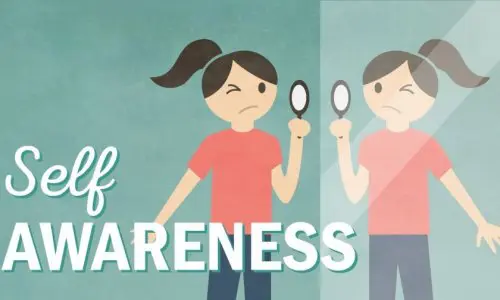Self-awareness: the cornerstone of personal growth. In today’s fast-paced world, it’s easy to get lost in the hustle and bustle. But to truly thrive, we need to understand ourselves better. This blog post will delve into practical tips to enhance your self-awareness in 2024. We’ll explore the latest insights and strategies to help you unlock your full potential. Get ready to embark on a journey of self-discovery and empowerment.
Are you ready to become more self-aware? Let’s begin!
Table of Contents
What is self-awareness? Practically self-awareness means:
The We are looking for patterns in our thinking when we are trying to understand and understand specifically what is happening to us and what is happening in the world as far as we know in general.
Things are looking at how we mean and value those things.
Emotions Gaining insight into our emotions, moods, reactions and responses.
Default Paying attention to our default responses and our well-accustomed tendencies.
Types of self-awareness
Understanding the different facets of self-awareness is essential for personal growth. Here are the primary types:
1. Internal Self-Awareness
This involves looking inward to understand your thoughts, emotions, values, motivations, and strengths. It’s about knowing your inner world and how it influences your behavior.
2. External Self-Awareness
This focuses on how others perceive you. It involves understanding your impact on others, your reputation, and how your actions are interpreted.
3. Blind Spots
This refers to the areas about yourself that you’re unaware of but others can see. It’s important to be open to feedback and identify these blind spots to improve self-awareness.
By developing a strong understanding of these three types, you can gain valuable insights into yourself and how you interact with the world
Benefits of self-awareness
Self-awareness is more than just a buzzword; it’s a powerful tool for personal and professional growth. By understanding yourself better, you can unlock a world of possibilities. Here are some key benefits:
- Improved Decision Making: When you know your values, strengths, and weaknesses, you can make choices aligned with your goals.
- Enhanced Relationships: Self-awareness fosters empathy, allowing you to connect with others on a deeper level.
- Increased Emotional Intelligence: Understanding your emotions helps you manage stress, build resilience, and communicate effectively.
- Boosted Confidence: Knowing your strengths and capabilities builds self-assurance.
- Career Success: Self-awareness is essential for leadership, teamwork, and personal branding.
- Overall Well-being: A deeper understanding of yourself contributes to a happier and more fulfilling life.
By investing time in self-awareness, you’re investing in your future.
What is the purpose of self-awareness? The purpose of self-awareness is to realize personal interests,
- Clarity of thought
- Effective more effective communication
- Decision making better decision
- Relationships Better relationships
- Improved moods
- Personal Increased personal productivity
- What is self-awareness and how should it be developed?
1. Pay attention to the things that bother you about other people
Sometimes things that irritate you in other people can be a reflection of certain aspects of yourself that you don’t like and so is the area in which you work.
Also, it may be because they think and process differently than they do and it prompts you to re-evaluate and upgrade your understanding.
I find myself uncomfortable when I reflect on certain behaviors that annoy me in some of the people I know socially, when I touch some part of my nature.
2. Pay attention to things that hurt other people about you
You meet and communicate with people who have an immediate and strong reluctance for reasons you do not see.
A few years ago, I was very sad to find out that there was some guy in my social circle called Mike. At the time I was completely unaware of this and when another social interaction took place, he was anxious about the upcoming social gatherings because this guy and I were both attending the same event.
3. Observe completeness and observe repetitive patterns of our thoughts and emotions
Thich Nat Hanh teaches us how to raise awareness by recognizing that our true home does not exist in the past and does not exist in the future. Our real home is here and now.
You understand that what is important is not the content of your thoughts, but your relationship with your thoughts.
This leads you to realize that it is not your thoughts.
4. Know your emotional triggers
One of the benefits of mindfulness is that you learn to respond to yourself when your emotions are aroused.
Having practiced intelligently for about 15 years I can now say with certainty that this practice is a process that helps me learn about my emotional trigger points painfully and regularly.
I have learned to handle my reactions to the big issues that have to do with the relationship. And things that happen in business and let them pass without sinking into my feelings.
5. Ask and listen to feedback
Choose and trust people you know well and ask them for objective feedback about you in specific situations.
I occasionally ask for feedback from my family and close work colleagues, and what I notice is the difference between how I think people are talking and how they are receiving it!
For example, I was often told that I would adopt the Kurt and Bose style. And say things in a way that seemed to tell people what to do. Inside my head, I was very reasonable and helpful.
6. Try different experiences – travel or learn a new skill
Going to new and unfamiliar places and stepping outside your comfort zones will show you about yourself. It can be as big as international travel or get a new interest in interacting with different people with your general audience.
Working in Singapore and traveling extensively across Southeast Asia and meeting. Working and socializing with people from many different backgrounds has challenged me and helped me in many ways and certainly boosted my self-awareness.
7. Take psychometric tests
Take one of the popular tests like Myers-Briggs or Engram. It turned out to be a real game for me! For many years of my adult life I was able to see how, why others could not see what I could see, why they could not assess the situation – especially in business- and see exactly what to do [or at least what I thought I needed to do]!
What causes a lack of self-awareness?
Lack of self-awareness can stem from various factors:
- Fear: Fear of vulnerability, judgment, or failure can hinder self-reflection. Fear of being wrong also plays a significant role. This leads to us being afraid to be self-aware because instead of seeing ourselves honestly, we put on a fake persona so that others would see how great we are and we wouldn’t think about our faults. People fear being self-conscious because it means admitting and accepting their mistakes.
- External Validation: Relying heavily on external validation can overshadow self-understanding.
- Lack of Self-Reflection: Busy lifestyles and avoidance of introspection can contribute to a lack of self-awareness.
- Defensive Mechanisms: Protecting one’s ego can hinder the ability to see oneself objectively.
- Childhood Experiences: Early life experiences and upbringing can shape self-perception.
- Cognitive Biases: These mental shortcuts can distort our understanding of ourselves.
- Low Self-Esteem: Negative self-image can hinder the exploration of one’s true self.
Understanding these root causes is crucial in developing strategies to improve self-awareness.
How do I know if I’m a self-aware person?
Self-awareness is a journey, not a destination. It’s about continuous growth and understanding. Here are some signs you might be on the right track:
- Emotional Intelligence: You can identify, understand, and manage your emotions effectively.
- Openness to Feedback: You’re receptive to constructive criticism and use it for personal growth.
- Self-Reflection: You regularly take time to analyze your thoughts, feelings, and behaviors.
- Understanding Your Values: You know what’s important to you and align your actions accordingly.
- Empathy: You can understand and share the feelings of others.
- Adaptability: You’re flexible and can adjust to changing circumstances.
- Honest Self-Assessment: You’re able to recognize your strengths and weaknesses without denial.
- Effective Communication: You can express your thoughts and feelings clearly and assertively.
Determining Your Level of Self-Awareness
Let’s start with a little praise and encouragement: Your approach to self-reflection is commendable. You’re open to feedback and considering your actions thoughtfully. Remember, everyone has room for growth, and self-awareness is a continuous journey.
To gauge your self-awareness, consider these questions:
- Is your lack of self-awareness significantly impacting your life? If not, it might be a normal part of personal development.
- Do multiple trusted individuals suggest you need to improve your self-awareness? Consider their perspectives and the reasons behind their feedback.
- Break down self-awareness into specific elements: Assess your strengths and areas for growth in each area.
Here are some core elements of self-awareness:
- Emotional self-awareness: How well do you understand your emotions and how they influence your behavior?
- Self-assessment accuracy: How accurately can you evaluate your strengths, weaknesses, values, and motivations?
- Self-confidence: Do you believe in your abilities and trust your judgment?
- Openness to change: Are you receptive to new information and willing to modify your behavior?
- Self-regulation: Can you manage your impulses and emotions effectively?
Rate yourself on each element using “Rarely,” “Sometimes,” or “Often.” A predominance of “Sometimes” and “Often” indicates a good level of self-awareness.
Remember, this is a starting point. Consistent self-reflection and seeking feedback will help you refine your self-awareness over time.
Learn More about :How are children injured with ironing board? Info 2024
Conclusion
Self-awareness is the compass that guides your journey to personal growth and fulfillment. By understanding your thoughts, emotions, and behaviors, you unlock the potential to build stronger relationships, make informed decisions, and live a more purposeful life.
Remember, self-awareness is a lifelong practice. It requires consistent effort, self-reflection, and a willingness to embrace your authentic self. Start small, be patient, and celebrate your progress.







